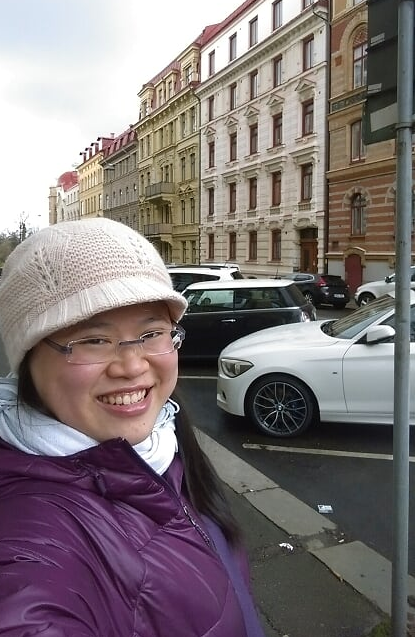In the spotlight is an initiative by PSS that features hospital pharmacists who excel in their area of practice and are role models for fellow pharmacists.

We are featuring Miss Lee Jye Chyi from Tan Tock Seng Hospital (TTSH) in this edition of in the spotlight. Jye Chyi graduated with a Bachelor of Science (Pharmacy) with Honours from the National University of Singapore in 2007. In 2014, she completed her Masters of Science in Clinical Pharmacy from Queen’s University Belfast.
Jye Chyi is a Principal Pharmacist (Clinical) in the TTSH outpatient pharmacy and currently leads the Transitional Care Team under the Pharmacy Clinical Service Unit. She is also actively involved in education and training of students, pre-registration pharmacists, as well as pharmacy assistants and technicians.
We will learn more about Jye Chyi’s career progression and her passion towards the pharmacy profession through the interview below:
1. Describe your career progression so far and current job scope and/or projects that you have been involved in.
I started out as a pre-registration pharmacist in TTSH in 2007, and stayed on in outpatient pharmacy. In my first year of practice, I had to call a patient to rectify a medication error. When her son asked “Is there anyone who can help us with my mum’s medication? She’s very confused.”, I realised that a lot of patients might be facing similar problems. With this, I started my journey into providing outpatient and home medication review services. I started providing medication reviews in patients’ homes in 2010, in collaboration with other healthcare professionals, under the national Pharmacists’ Outreach Program (POP) and TTSH Virtual Hospital service. POP focused on patients with medication issues after being discharged; while Virtual Hospital service managed patients who were frequently admitted.
Concurrently, I became involved in training, and have trained and/ or developed and led training programs for various groups, including polytechnic students, pharmacy technicians, NUS pharmacy students, preregistration pharmacists, pharmacists and nurses.
2. Name one thing in the pharmacy profession in which you are passionate about.
Educating the future generations.
3. Describe the most memorable day in your life as a pharmacist.
It was the first time I conducted a home visit. Being my first time, I wasn’t sure what to expect, what to prepare and what to bring. No one around me had done it before. It was a gentleman in his sixties, who was admitted 22 times within 10 months. He was diagnosed with atypical chest pain for most of it, and gastro-esophageal reflux disease 4 times. It was a visit of multiple revelations, when I realized how distressing it can be for patients to frequently admit into and out of hospital, as he started experiencing anxiety as a result of not knowing when his next "attack" would come. I would see it recurring in patients who experienced similar anxieties for chronic obstructive pulmonary disease and chronic heart failure.
But perhaps the most revelatory point came when his wife said she sometimes took his medication for headaches, thinking it was paracetamol, and she held up metformin 500mg tabs he was taking for diabetes (because they were "white and round and look like Panadol"). I understood then, that for all the work pharmacists have been doing, there is still some way to go, to help the population achieve sufficient health literacy to prevent such issues. Therefore, I started to believe home visitations are important to understand how the general public views healthcare and manage their own health.
4. How do you maintain work life balance in this profession?
I view work as part of life, and it fulfils a human need to be part of a bigger society where we contribute in some ways. I believe we gain something intangible yet meaningful in working for others, when our talents are utilized to the max, and when we give our fullest, desiring to see something better develop as a result of what we do. There is something satisfying in viewing a job well done, and rounds out my psyche. Hence, I do not differentiate between work and life, but give my attention to whatever I am engaged in at the moment, whether it is work or play.
5. Give one advice to motivate our younger pharmacists to overcome the current challenges of the profession.
It is okay to start out not knowing what we want to do. When we give our all to whatever that comes along, it may become our passion. Even if that does not happen, the skills we learn from doing that will likely be of great help when the next thing comes along. So, do engage fully with what is in front of you.
6. What do you think make someone an outstanding pharmacist?
Someone who is willing to learn, and listen to all parties, and act on the learning.


